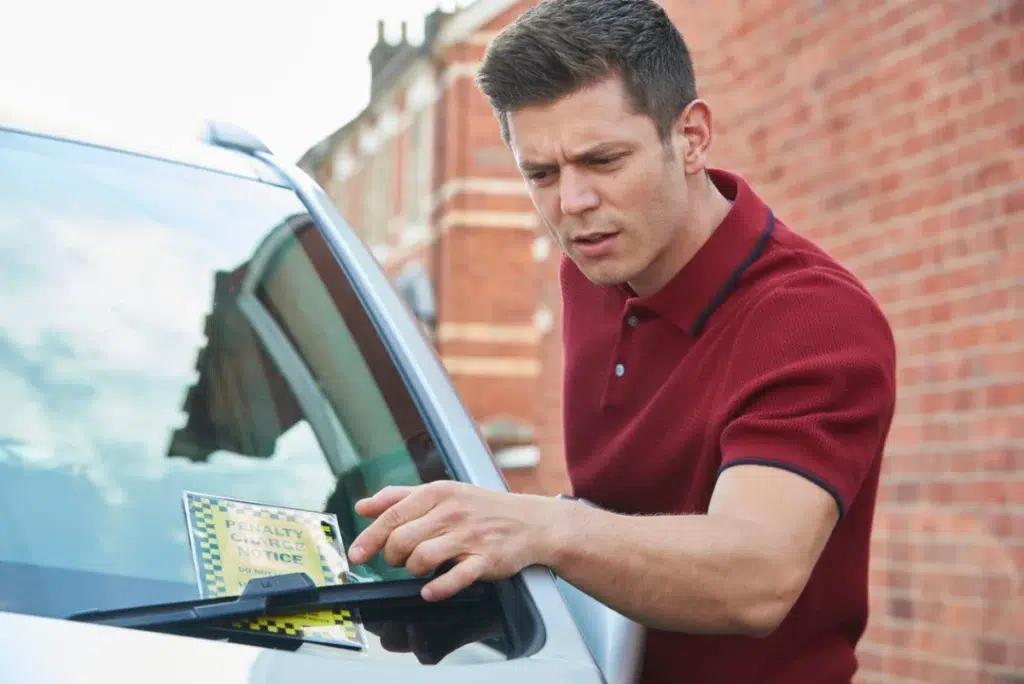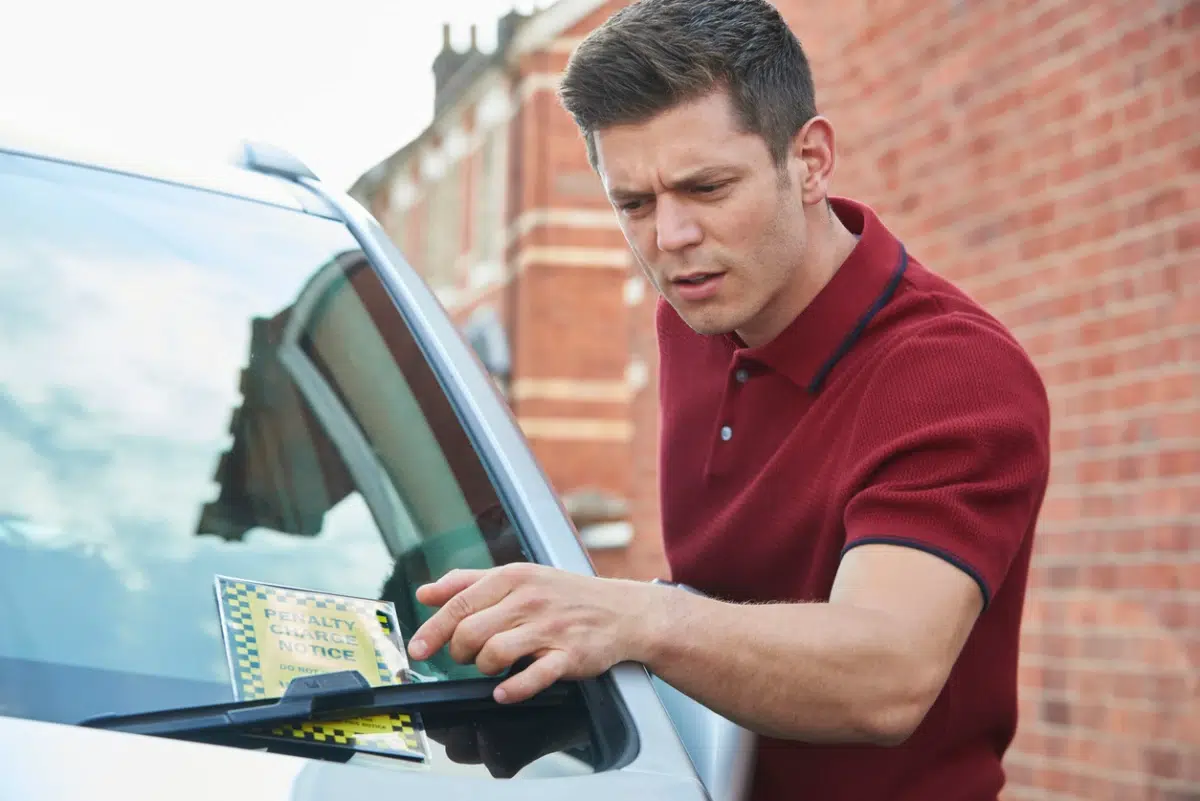
Millions of traffic citations are written annually in the United States for offenses ranging from speeding to not having working turn signals. Drivers who are found guilty of these offenses can face several potential penalties. This helps explain why many people want to know, “How do lawyers dismiss traffic tickets?”
Fighting a ticket can come with complexities; however, avoiding a conviction on your driving record can help you avoid higher insurance premiums, a suspended driver’s license, and other consequences. Knowing how to beat a traffic ticket in Indiana or how to get a ticket dismissed in court can save you headaches down the road.
Here, we explore the strategies experienced Indianapolis traffic violation attorneys use to get their clients’ traffic tickets dismissed before and in court.
Understanding Traffic Tickets in Indianapolis
When an Indianapolis law enforcement officer sees you commit a traffic offense, they can pull you over and issue you a traffic ticket. Your ticket, or “citation,” will list the offenses that the officer believes you committed. There are two general types of violations for which you can be cited: “moving” and “non-moving” offenses.
“Moving” violations are offenses committed while you are driving or attempting to move your vehicle. Common examples include exceeding the speed limit or running a stop sign. Conversely, “non-moving” violations, such as having a defective taillight, do not require that your car be in motion before you can be convicted of them.
Most traffic violations are civil offenses and are punishable by a fine or administrative penalty. Others are misdemeanors, which can lead to not only fines but also incarceration if you are convicted. Operating while intoxicated (OWI) is one example of a traffic-related misdemeanor that can result in jail time upon conviction.
Some criminal traffic violations rise to the level of felonies, which carry more severe penalties, such as time in prison.
What Happens After You Are Cited?
Your traffic ticket will contain a court date and a recitation of the fines and fees you owe for your violation. If you pay the total reflected on the ticket before your court date, you do not have to appear in court. However, by paying the ticket amount, you are admitting guilt to the offenses.
How do lawyers get traffic tickets dismissed? The process begins by speaking with the prosecutor and appearing in court on the provided court date. Your lawyer may talk with the prosecutor handling your case soon after you retain them. Unless excused by the court, though, you or your attorney must appear in court on the provided court date.
You might also wonder, “How do traffic lawyers get tickets dismissed if the client misses the court date and then hires counsel?” Missing an appearance date on your citation can lead to negative outcomes, depending on your charges. For civil infractions, a failure to appear can lead to the suspension of your license.
For misdemeanor or felony criminal offenses, failing to appear may result in the court issuing a warrant for your arrest.
What Constitutes a Traffic Violation
A traffic violation occurs when you break one of Indiana’s traffic laws or statutes governing the operation of motor vehicles. Common violations that result in drivers being ticketed include:
- Speeding
- Running a red light or stop sign
- Operating a vehicle while impaired
- Not stopping for a school bus
- Speeding through a school zone
Accumulating convictions for certain violations can result in a habitual traffic violator (HTV) designation. The following can each result in an HTV designation when they occur within 10 years:
- Two major offenses resulting in injury or death
- Three major offenses
- Nine traffic violations plus one major offense
An HTV designation results in a five- to ten-year license suspension.
Consequences of Traffic Tickets
Indiana traffic laws and ticket penalties consist primarily of fines. The specific amount of fines you will pay for your ticket will depend on the charge or charges and will include local court fees. Together, the total cost for traffic citations can range from $25 to several hundred dollars, especially if you participate in an infraction deferral program.
Other common consequences of receiving and being found guilty of a traffic violation include:
Increased Car Insurance Premiums
Your auto insurance company may view you as a higher risk if you are cited for certain moving violations. As a result, your insurance premiums may increase, or your insurance company may drop you as a customer altogether.
Points on Your Driving Record
Moving violations add “points” to your driving record. If you accumulate more than 18 points within a rolling two-year period, your license can be suspended for at least one month. You can face additional penalties if you drive on a suspended license.
Impact on Commercial Driver’s License (CDL)
Like private motorists, commercial drivers who accumulate more than 18 points in a two-year period can have their driving privileges suspended. Committing certain serious or repeated traffic infractions can lead to the revocation of your CDL.
How Do Lawyers Dismiss Traffic Tickets
There are three primary methods by which traffic lawyers in Indianapolis keep traffic violations off of their clients’ driving records: deferral, plea deals, and not-guilty verdicts. Here is a more detailed explanation that answers the question, “How do lawyers dismiss traffic tickets?” using each of these methods:
Deferrals
Deferral programs allow you to get your traffic charges dismissed once you have satisfied certain conditions. These conditions can involve paying a deferral fee, maintaining auto insurance during the deferral period, and not receiving any additional traffic citations or criminal charges until the deferral program is complete.
Provided you have complied with all of the program’s conditions, your charges are dismissed after the program ends. While this is the most direct way to receive a dismissal of your citation, not everyone will qualify for participation in a deferral program.
Plea Deals
For those who do not qualify for a deferral but who do not want to challenge their ticket in court, a plea deal might be a way to avoid some of the consequences of a traffic ticket. Plea deals are agreements between you and the prosecutor in which you agree to plead guilty to certain offenses in exchange for the dismissal of other charges.
An example of a traffic plea deal is agreeing to plead guilty to a non-moving traffic violation in exchange for having a moving violation dismissed. While you would still pay a fine and costs, non-moving violation convictions do not add points to your license and usually do not cause your car insurance premiums to increase.
Plea deals can be an effective method for lawyers to reduce fines or points for their clients if the client cannot obtain a deferral.
Dismissal at Trial
How do traffic lawyers get tickets dismissed if their clients do not qualify for deferral and the prosecutor does not want to entertain a deal? You can avoid the consequences of a ticket if you prevail at trial and are found not guilty of the offense. Being found not guilty means nothing is reported on your record, and you face no penalty for the offense.
Importance of Legal Representation
Traffic laws and the traffic court process in Indianapolis are complicated, especially if you have not been previously ticketed. You could experience stress and anxiety, especially if you are innocent of the charges listed on your ticket but do not feel confident about contesting them.
Having an experienced traffic lawyer representing you offers numerous benefits. A local attorney will be more familiar with the court system in your jurisdiction, the judges who hear traffic cases, and the prosecutors who handle them. They can provide answers to your questions and accurate information about your options for contesting your ticket.
The right attorney’s involvement in your case can reduce your stress and keep you from having to miss time from work to attend court. They are also better able to secure a dismissal or other favorable outcome in your case, which can end up saving you money and additional stress.
Traffic Ticket Defense Strategies Used by Indianapolis Attorneys
When attempting to get your traffic charge dismissed, attorneys will employ a variety of investigative and negotiating tactics. Most will begin by analyzing the prosecution’s case against you by reviewing police reports, dash cam footage, and any other evidence the prosecution claims shows you are guilty of the offense.
When reviewing the prosecution’s evidence, your lawyer will be looking for:
- Missing footage or footage that does not show a traffic violation
- Objective evidence that contradicts information contained in police reports
- The reliability of the officer’s police equipment, such as the officer’s radar unit
- Whether signs were erected or signals were operational when and where your violation occurred
- Evidence that was illegally obtained from you and can be suppressed
The sooner you hire an attorney to help you, the faster they can accomplish these tasks. As they learn more about your case and the weaknesses of the state’s evidence, your lawyer can then explore with greater confidence ways to help you avoid the consequences of your ticket or get your ticket dismissed.
When to Hire a Traffic Lawyer in Indianapolis
If you are not concerned about the consequences of your traffic ticket, then there may not be a need to consult with an attorney. However, speaking with an experienced traffic lawyer is advisable if:
- You did not commit the offenses you were cited for
- You have points on your license or are concerned about getting more points
- You do not want your insurance premiums to increase because of an oversight or honest mistake on the road
If any of the above apply to you, contact Gemma & Karimi immediately. You have a limited window of time in which to take action to avoid the penalties of your citation. Begin the process today by reaching out to us and requesting an initial consultation.



